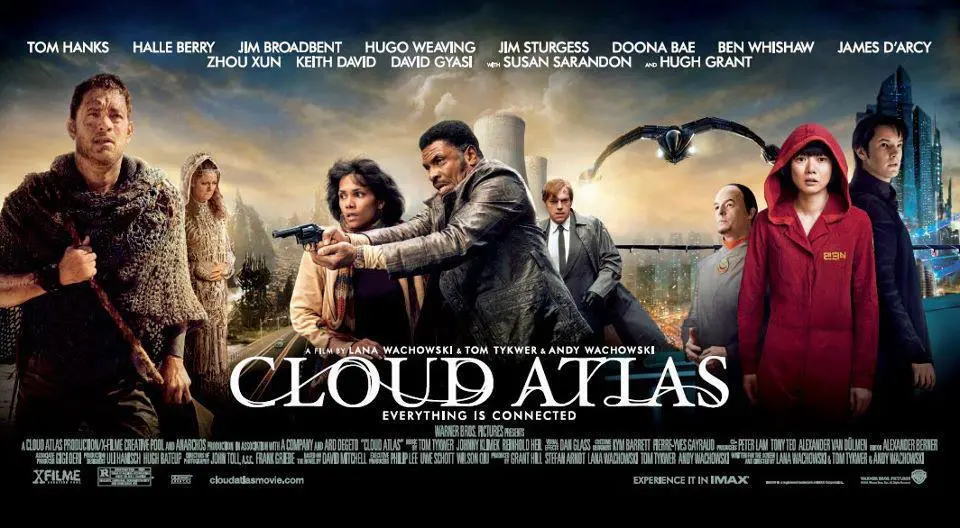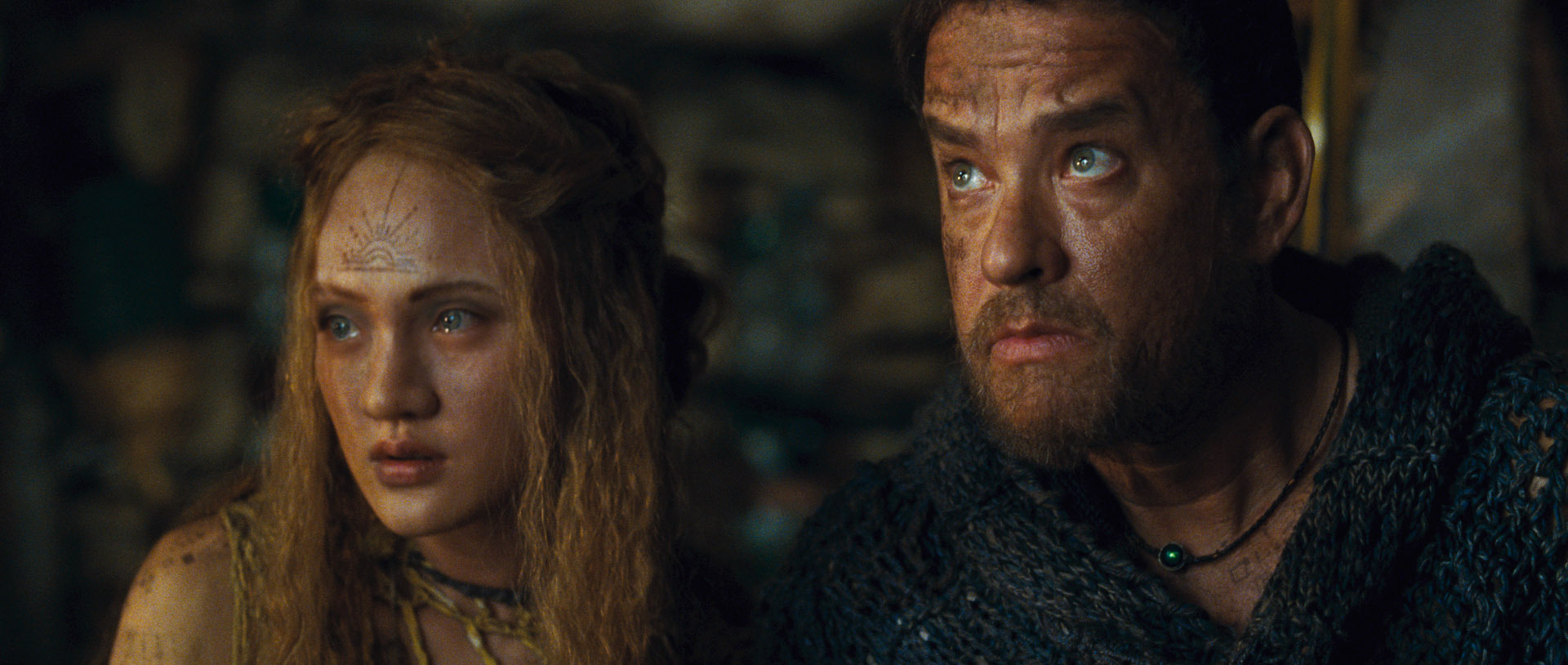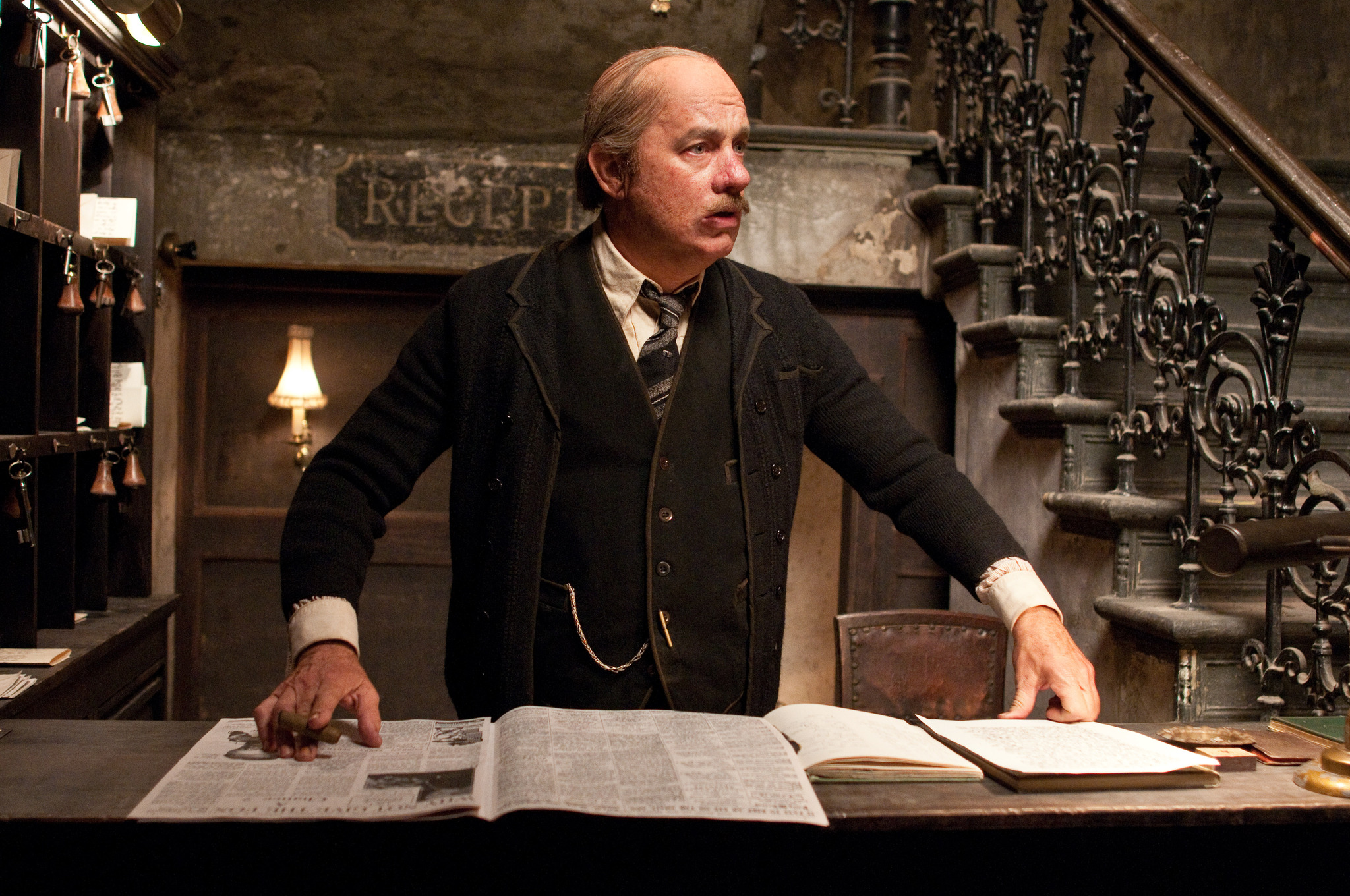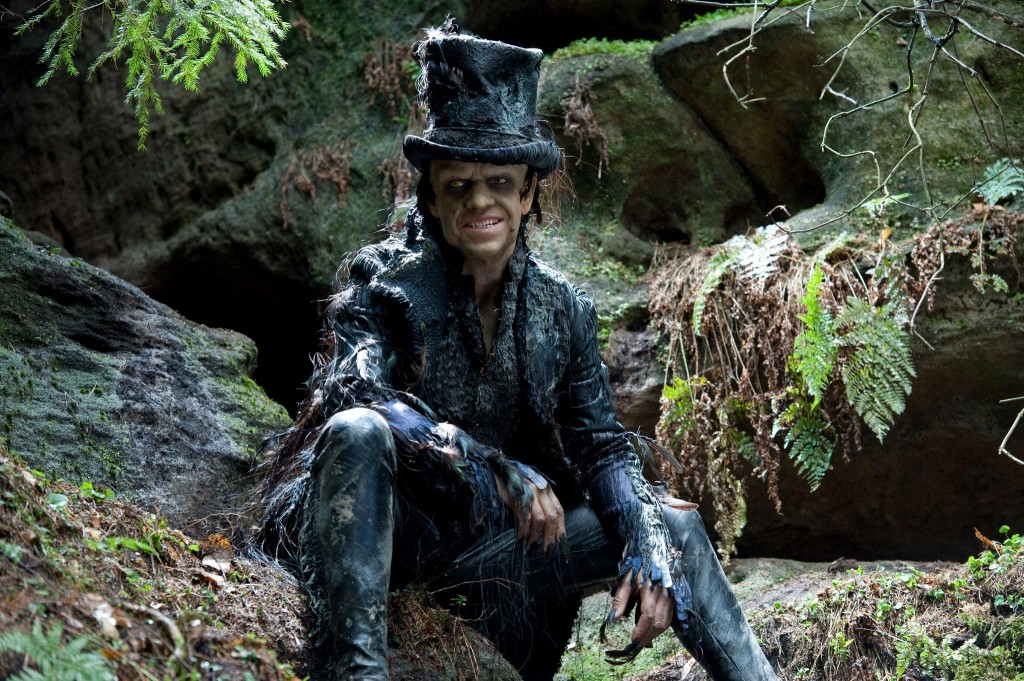Cloud Atlas (2012)
- nguyentruong
- November 24, 2024

Cloud Atlas (2012) is a sweeping cinematic masterpiece that interweaves six interconnected stories spanning centuries, exploring the profound themes of interconnectedness, reincarnation, and the enduring fight between oppression and freedom. Directed by Lana Wachowski, Lilly Wachowski, and Tom Tykwer, the film is based on David Mitchell’s acclaimed novel and ambitiously seeks to illustrate how individual actions ripple across time, shaping lives and histories in ways both profound and subtle.
The narrative unfolds across vastly different time periods, beginning in 1849 with the journey of Adam Ewing, a young lawyer traveling by ship in the South Pacific. His story explores the moral dilemmas of slavery and systemic exploitation as he forms an unlikely bond with Autua, a stowaway slave. Decades later, in 1936, an aspiring composer named Robert Frobisher seeks mentorship from a famed but ailing maestro while crafting the haunting “Cloud Atlas Sextet,” a piece of music that echoes across the film. This is followed by Luisa Rey’s quest in 1973, where the journalist uncovers dangerous corporate conspiracies surrounding a nuclear power plant, risking her life to expose the truth.

In a more comedic yet poignant shift, Timothy Cavendish, a vanity press publisher in 2012, finds himself tricked into a retirement home and desperately plots his escape, reflecting the universal desire for freedom. Centuries ahead in 2144, the dystopian future of Neo-Seoul introduces Sonmi~451, a cloned worker who gains self-awareness and becomes a symbol of revolution against oppression. Finally, the story ventures into a post-apocalyptic future in 2321, where a tribesman named Zachry reluctantly assists Meronym, a technologically advanced explorer, in her mission to uncover truths that could save humanity from extinction.
The film’s overarching theme is the cyclical nature of human history and the interconnectedness of souls. Actors such as Tom Hanks, Halle Berry, Jim Sturgess, Doona Bae, and Hugo Weaving appear across multiple timelines, portraying different characters with vastly diverse roles, races, and moral alignments. This unique casting choice underscores the idea that individual identities transcend time and form, connecting the actions and choices of each character across the centuries.

Visually, Cloud Atlas is a triumph. Each timeline has its own distinct visual style, from the rich, atmospheric tones of the 19th century to the neon-lit dystopia of Neo-Seoul and the haunting desolation of the post-apocalyptic landscapes. The seamless transitions between these timelines create a sense of fluidity, emphasizing the parallels and echoes between each story. The visual storytelling is further enhanced by the meticulous costume and makeup design, which transform the cast into diverse personas across eras and cultures.
The film’s score, composed by Tom Tykwer, Johnny Klimek, and Reinhold Heil, is a cornerstone of its narrative. The “Cloud Atlas Sextet,” a recurring piece of music composed within the story, serves as a unifying thread, symbolizing the eternal echoes of human experience and the connections between the characters.
Cloud Atlas is both an epic and an intimate tale, tackling philosophical questions about the nature of humanity, the consequences of our actions, and the timeless struggle between freedom and tyranny. While its ambitious structure and complex narrative initially divided critics, the film has since gained a devoted following, celebrated for its daring vision and emotional depth.
This is a film that dares to explore the infinite possibilities of storytelling, challenging viewers to see beyond the immediate and into the eternal connections that bind us all. It is not just a tale of individuals but a symphony of human existence, reminding us that even the smallest acts of courage and kindness can resonate through time, shaping the world for generations to come.











